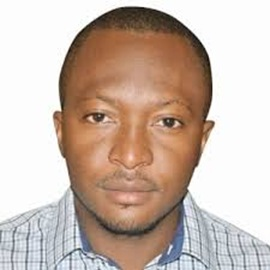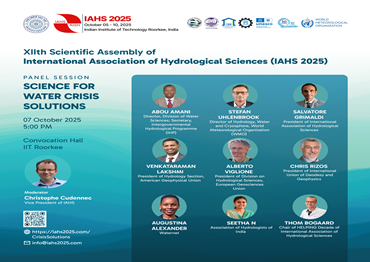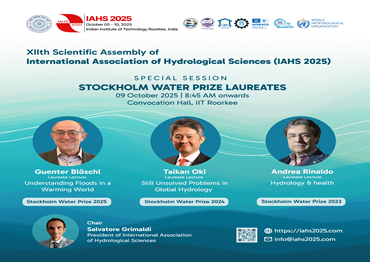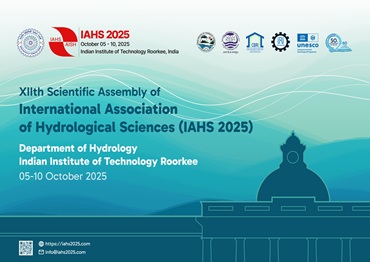IAHS ECC & YHS India workshops for Early Career Researchers in Hydrology
Side Event
IAHS ECC & YHS India workshops for Early Career Researchers in Hydrology (Lecture/Presentation)
About Event:
This workshop series is organised by the Early Career Committee of the International Association of Hydrological Sciences (IAHS ECC) in collaboration with the Young Hydrologic Society India (YHS India). The proposed workshop series aims to strengthen both technical knowledge and professional soft skills of early career researchers (ECRs) in the field of hydrology. The first workshop focuses on training the researchers to successfully communicate their science to targeted audiences. The second workshop provides technical understanding to the researchers on Big Data and Machine Learning and their application in the field of hydrology. While the workshop series is especially beneficial for ECRs, participants at all career stages are warmly welcome to join.
Workshop 1: Strategies for Impactful Science Communication and Storytelling
Nowadays, effective scientific communication is key to a successful career in academia and beyond. Scientific communication can take several forms, e.g., proposal writing for research funding, communicating science to general audiences to increase public awareness, and communicating scientific results from a research panel to policy and decision makers. Therefore, proper training in how to effectively communicate research findings and tailor presentations for specialized and general audiences is the key to success. Acknowledging the importance of successful scientific communication for early and mid-career researchers, we present a workshop that brings together experts in the field of scientific communication to students and early-career researchers at various levels to share best practices, essential rules, novel ideas and techniques for effective scientific communications and storytelling.
Workshop 2: Advancing Hydrology with Big Data and Machine Learning
Modern computing and sensing technology have led to a wealth of data that can provide novel insight into the functioning of hydrologic systems and improved projections of future system behavior. With the growing need and dual pressure of climate change and population growth, it has become inevitable to integrate big data and machine learning for understanding and addressing complex water related issues. The combination of big data and machine learning enables developing better water management strategies, predicting spatio-temporal variability of water resources, and mitigating the adverse consequences of water related hazards such as floods and droughts. However, this wealth of data brings its own challenges in data exploration and analysis, lack of interpretability, and potential large computational cost. With this background, the workshop invites a few lectures aiming towards the application of big data and machine learning to make more informed decisions for sustainable water practices for the benefit of society and environment. In this workshop experts will discuss how they address the challenges of dealing with big data using machine learning, and provide useful guidance and examples of various approaches and tools.
Day 1 : 05 October, 2025
Day 2 : 11 October, 2025
Event organizer

Moctar Dembele
Researcher - Spatial Hydrology, International Water Management Institute (IWMI)Expert names and details (Workshop 1):
- Prof. Christophe Cudennec, Institut Agro, France and Imperial College London, UK.
- Dr. Christina Orieschnig, French National Research Institute for Sustainable Development, France.
- Dr. Maheswaran Rathinasamy, Core Faculty at the Department of Civil Engineering, Affiliate Faculty at the Department of Climate Change, IIT Hyderabad, India.
Expert names and details (Workshop 2):
- Prof. Adeyemi Olusola, York University, Canada.
- Dr. Sushindra Kumar Gupta, National Institute of Hydrology Roorkee, India.
Agenda:
Maximum Number of Participants: 50-100


















